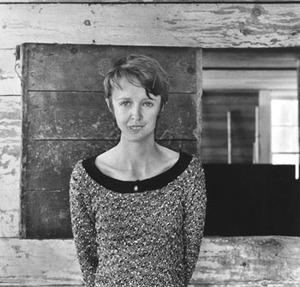A Quote by Stefan Molyneux
If there's more that you can do, then do it. If there's not more that you can do, then be content with what you're doing. But if there is despair, the despair can only be that you can do more. Because when you're doing as much as you can do, you will not feel despair. Because despair is the gap between what you could be doing and what you are doing.
Related Quotes
It's despair at the lack of feeling, of love, of reason in the world. It's despair that anyone can even contemplate the idea of dropping a bomb or ordering that it should be dropped. It's despair that so few of us care. It's despair that there's so much brutality and callousness in the world. It's despair that perfectly normal young men can be made vicious and evil because they've won a lot of money. And then do what you've done to me.
The ever increasing intensity of despair depends upon the degree of consciousness or is proportionate to this increase: the greater the degree of consciousness, the more intensive the despair. This is everywhere apparent, most clearly in despair at its maximum and minimum. The devil's despair is the most intensive despair, for the devil is sheer spirit and hence unqualified consciousness and transparency; there is no obscurity in the devil that could serve as a mitigating excuse. Therefore, his despair is the most absolute defiance. . . .
An individual in despair despairs over something. . . . In despairing over something, he really despair[s] over himself, and now he wants to get rid of himself. Consequently, to despair over something is still not despair proper. . . . To despair over oneself, in despair to will to be rid of oneself-this is the formula for all despair.
Compared with the person who is conscious of his despair, the despairing individual who is ignorant of his despair is simply a negativity further away from the truth and deliverance. . . . Yet ignorance is so far from breaking the despair or changing despair to nondespairing that it can in fact be the most dangerous form of despair. . . . An individual is furthest from being conscious of himself as spirit when he is ignorant of being in despair. But precisely this-not to be conscious of oneself as spirit-is despair, which is spiritlessness. . . .
What is courage? This courage will not be the opposite of despair. We shall often be faced with despair, as indeed every sensitive person has been during the last several decades in this country. Hence Kierkegaard and Nietzsche and Camus and Sartre have proclaimed that courage is not the absence of despair; it is, rather, the capacity to move ahead in spite of despair.
You're not eating anything," said Marilla sharply, eying her as if it were a serious shortcoming. Anne sighed. I can't. I'm in the depths of despair. Can you eat when you are in the depths of despair?" I've never been in the depths of despair, so I can't say," responded Marilla. Weren't you? Well, did you ever try to IMAGINE you were in the depths of despair?" No, I didn't." Then I don't think you can understand what it's like. It's very uncomfortable a feeling indeed.
I despair at the rise of modern violence. I truly give in to despair at times, that deep, futureless pit of despair.... I watch the American slaughterhouse, the casual attacks on popes, presidents, and uncounted others, and I wonder if there are many more out there with the Ability or if butchery has simply become the modern way of life.
I am of the opinion, and even more so the older I get, that it is more difficult to have hope than it is to despair. And I mean this in the sense that in order to have hope you must acknowledge the despair and then you have to get beyond it. Taken from a radio interview given on BBC Radio 4's Open Book
Only the man who has had to face despair is really convinced that he needs mercy. Those who do not want mercy never seek it. It is better to find God on the threshold of despair than to risk our lives in a complacency that has never felt the need of forgiveness. A life that is without problems may literally be more hopeless than one that always verges on despair.
The pleasure of despair. But then, it is in despair that we find the most acute pleasure, especially when we are aware of the hopelessness of the situation... ...everything is a mess in which it is impossible to tell what's what, but that despite this impossibility and deception it still hurts you, and the less you can understand, the more it hurts.






























